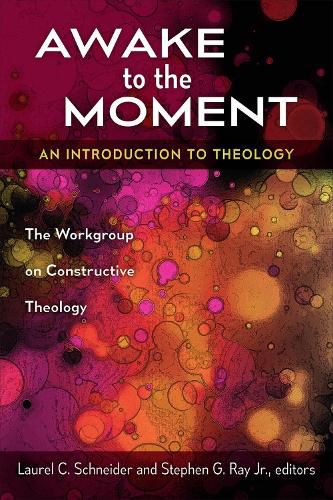Readings Newsletter
Become a Readings Member to make your shopping experience even easier.
Sign in or sign up for free!
You’re not far away from qualifying for FREE standard shipping within Australia
You’ve qualified for FREE standard shipping within Australia
The cart is loading…






This title is printed to order. This book may have been self-published. If so, we cannot guarantee the quality of the content. In the main most books will have gone through the editing process however some may not. We therefore suggest that you be aware of this before ordering this book. If in doubt check either the author or publisher’s details as we are unable to accept any returns unless they are faulty. Please contact us if you have any questions.
Most introductory textbooks in theology see their primary task as explaining Christian doctrines that no one quite understands anymore. While this is one of theology’s jobs, it is by no means the only, nor even the most important, one. Theology has also been called to change the world, to help people connect deeply rooted beliefs about the world’s source and goal to questions of personal meaning and communal thriving. Theology is here to help us make sense of the complex, flawed world into which we’ve been thrust and to assist us in our attempt to love our neighbors and live toward the common good.
For more than forty years, the Workgroup on Constructive Theology has brought the liberal and liberationist theological traditions into creative encounter with lived human experience. In this introduction to the methods and tasks of theology, they invite a new generation of readers, many who will have little or no exposure to Christian doctrine, to see theology as a partner in the struggle for a better world. They demonstrate how theological ideas have legs, playing themselves out not only in religious communities but in the public square as well. Theology, the authors tell us, is constructive when it joins in God’s work of building human lives and human societies. Readers will learn to think about all of life in light of their religious commitments and to see theology as an essential tool for a life well lived.
$9.00 standard shipping within Australia
FREE standard shipping within Australia for orders over $100.00
Express & International shipping calculated at checkout
This title is printed to order. This book may have been self-published. If so, we cannot guarantee the quality of the content. In the main most books will have gone through the editing process however some may not. We therefore suggest that you be aware of this before ordering this book. If in doubt check either the author or publisher’s details as we are unable to accept any returns unless they are faulty. Please contact us if you have any questions.
Most introductory textbooks in theology see their primary task as explaining Christian doctrines that no one quite understands anymore. While this is one of theology’s jobs, it is by no means the only, nor even the most important, one. Theology has also been called to change the world, to help people connect deeply rooted beliefs about the world’s source and goal to questions of personal meaning and communal thriving. Theology is here to help us make sense of the complex, flawed world into which we’ve been thrust and to assist us in our attempt to love our neighbors and live toward the common good.
For more than forty years, the Workgroup on Constructive Theology has brought the liberal and liberationist theological traditions into creative encounter with lived human experience. In this introduction to the methods and tasks of theology, they invite a new generation of readers, many who will have little or no exposure to Christian doctrine, to see theology as a partner in the struggle for a better world. They demonstrate how theological ideas have legs, playing themselves out not only in religious communities but in the public square as well. Theology, the authors tell us, is constructive when it joins in God’s work of building human lives and human societies. Readers will learn to think about all of life in light of their religious commitments and to see theology as an essential tool for a life well lived.